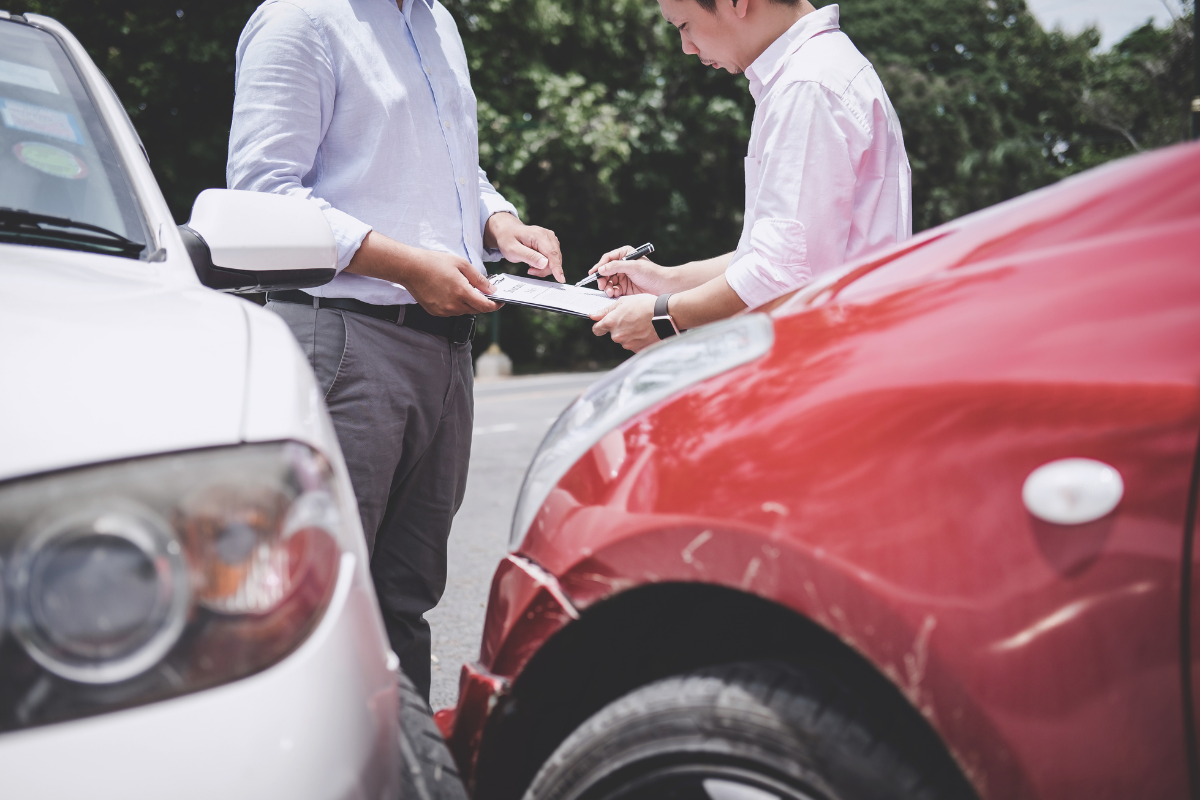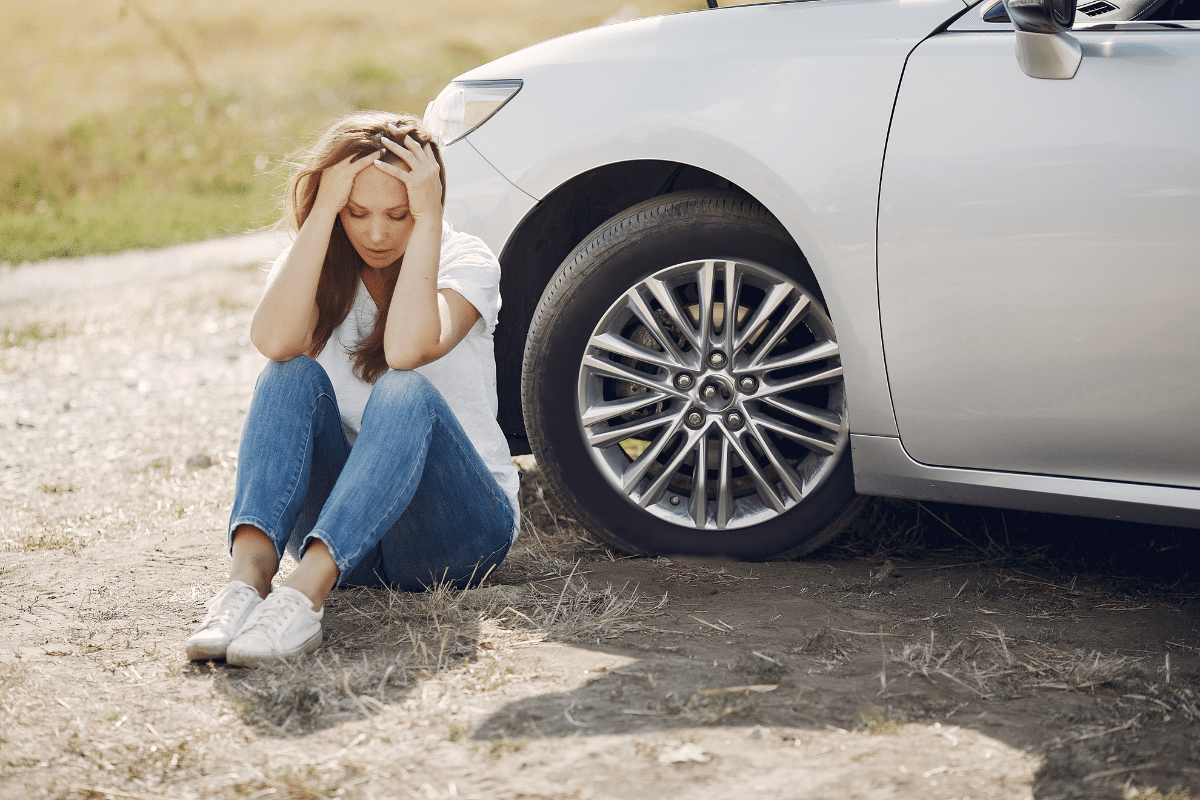Key Takeaways
- Virginia is an at-fault state for car insurance, meaning you can file a claim with the at-fault driver’s insurance company.
- You can hold the at-fault driver responsible for compensating you for damages, which normally include economic and non-economic losses.
- If the at-fault driver is uninsured, you can seek compensation through your uninsured motorist coverage, which is required by law in Virginia.
- Insurance companies never have your best interests in mind, so hiring a seasoned attorney can help you maximize your financial recovery.
Again, because Virginia is an at-fault insurance state, you can pursue the at-fault driver for injuries and losses they cause in a crash. However, even if you prove their negligence, you must also show that you did not contribute to the accident in any way. This is crucially important in Virginia.
An experienced Virginia car accident attorney at Cooper Hurley Injury Lawyers can help you navigate the claims process and protect your right to full and fair compensation. Our personal injury law firm has recovered tens of millions of dollars for clients throughout Virginia. We offer a free initial consultation so you can learn about your legal rights and options at no cost to you.
What Does It Mean That Virginia Is an At-Fault Insurance State?
Virginia is an “at-fault” when it comes to auto insurance, meaning the party who is at fault for an accident is responsible for paying for other people’s injuries and property damage. If you have been injured in an accident that was not your fault in Virginia, you can file a claim with the other driver’s insurance company. You also have the right to file a personal injury lawsuit seeking compensation.
Fault is a particularly important consideration in Virginia because of the state’s strict contributory negligence rule. Under Virginia’s system, any driver who is found to be partially at fault in the accident, even just sharing one percent of the blame, is barred from collecting compensation.
Initially, insurance adjusters will evaluate fault after a car accident using things like police reports, witness statements, photos, and other evidence to make their determination. Remember, it is not in your best interests to speak freely and casually with insurance adjusters because they will be on the lookout for any reason they can find to deny your claim.
If you end up filing a personal injury lawsuit, a court may then ultimately decide the merits and value of your case. Our car accident attorneys have the skills, experience, and resources needed to represent you in settlement negotiations and court.
No-Fault vs. At-Fault Insurance States
It is important to understand how claims are resolved in your state so you know how the claims process will unfold if you’ve been hurt in an accident. When it comes to auto insurance, states fall into one of two categories: no-fault and at-fault.
Only 12 states have no-fault insurance laws. They are Florida, Hawaii, Kansas, Kentucky, Massachusetts, Michigan, Minnesota, New Jersey, New York, North Dakota, Pennsylvania, and Utah. All other states, including Virginia, are at-fault states.
How these states handle auto accident cases can vary significantly. Here are some of the most significant differences between no-fault and at-fault insurance states:
| No-Fault Insurance States | At-Fault Insurance States (e.g., Virginia) |
Filing a Claim | Filed with your own insurer. | Filed with the at-fault driver’s insurer. |
Primary Source of Coverage | Personal injury protection (PIP), otherwise known as no-fault insurance. | Auto liability insurance |
Is PIP coverage required? | Yes, normally it is required. | Typically, no. However, some states have a hybrid insurance system (e.g., New York). |
Do you have to prove liability to collect damages? | No, you don’t have to prove liability in a no-fault state. | Yes, you must prove that the at-fault party caused your injuries and losses. |
Can you sue the responsible party for damages? | Sometimes, yes, but only if you meet certain conditions (i.e., the “tort liability threshold”). | Yes. If you can prove the other party caused you injuries and losses, you can pursue compensation. |
Who pays for medical treatment related to the accident? | Your own no-fault coverage applies. | You can sue the at-fault driver to recover the cost of present and future medical care associated with your injuries. |
Who pays for property damages? | The at-fault driver (PIP does not cover property damage). | The at-fault driver. |
Are non-economic damages, such as pain and suffering, available? | Typically, no. | Yes, you can sue for non-economic damages. However, remember that laws governing this form of damages vary across states. |
Can I collect damages if I was partially at fault? | Yes, you can collect damages. | It depends on the type of contributory negligence rule the state has. In Virginia, you cannot, even if you were just one percent at fault. |
Note: Remember, laws change over time and across state lines. Before relying on the information in this table, you should carefully review the specific laws in your state and consult with an experienced personal injury attorney.
Damages That You Can Recover in an At-Fault State
If you’ve been injured in a car crash in Virginia, you can pursue compensation from the at-fault driver for your economic and non-economic damages.
Economic Damages
Economic damages compensate for losses associated with your accident that can be easily reduced to a monetary value. They normally include compensation for things like:
- Medical expenses
- Lost wages
- Reduced earning capacity
- Property damage
Non-Economic Damages
By contrast, non-economic damages compensate for aspects of your injuries and losses that are more difficult to quantify due to their subjective nature. They normally cover compensation for things like:
- Physical pain and suffering
- Emotional distress
- Permanent disfigurement
- Lowered quality of life
The amount of compensation you receive through a personal injury claim depends on many factors. The extent of your injuries and financial losses are major factors in determining your claim’s value. However, the compensation you can ultimately collect will also depend on available insurance coverage.
What Are My Options if the At-Fault Party Is Uninsured?
The Insurance Information Institute estimates that over 10 percent of Virginia drivers do not carry auto liability insurance. So, what happens if you’re injured in an accident by a negligent motorist who has no coverage?
Virginia law requires drivers in the state to carry uninsured/underinsured motorist coverage. This means you can turn to your own UM/UIM motorist coverage if the at-fault driver in your accident has insufficient insurance to pay for your damages.
Importantly, the law was recently updated to allow the “stacking” of policies. This means coverage limits can be added together across policies so you can recover the full value of your uninsured and underinsured motorist coverage in addition to any other coverage available.
Contact Cooper Hurley Injury Lawyers To Discuss Your Car Accident Case
Virginia is an at-fault state for auto insurance, but that does not mean insurance companies will happily pay a fair settlement. If you or a loved one have been injured in a car accident, the car crash specialists at Cooper Hurley Injury Lawyers can protect your rights and fight for maximum recovery from the responsible party.
Our highly skilled car crash attorneys have over 100 years of combined experience and a proven track record of success handling personal injury cases.
Our firm is known for its dedication to client service and an unwavering commitment to representing the rights of the injured. Give us a call at (757) 333-3333 or contact us online to get your free case evaluation now.





